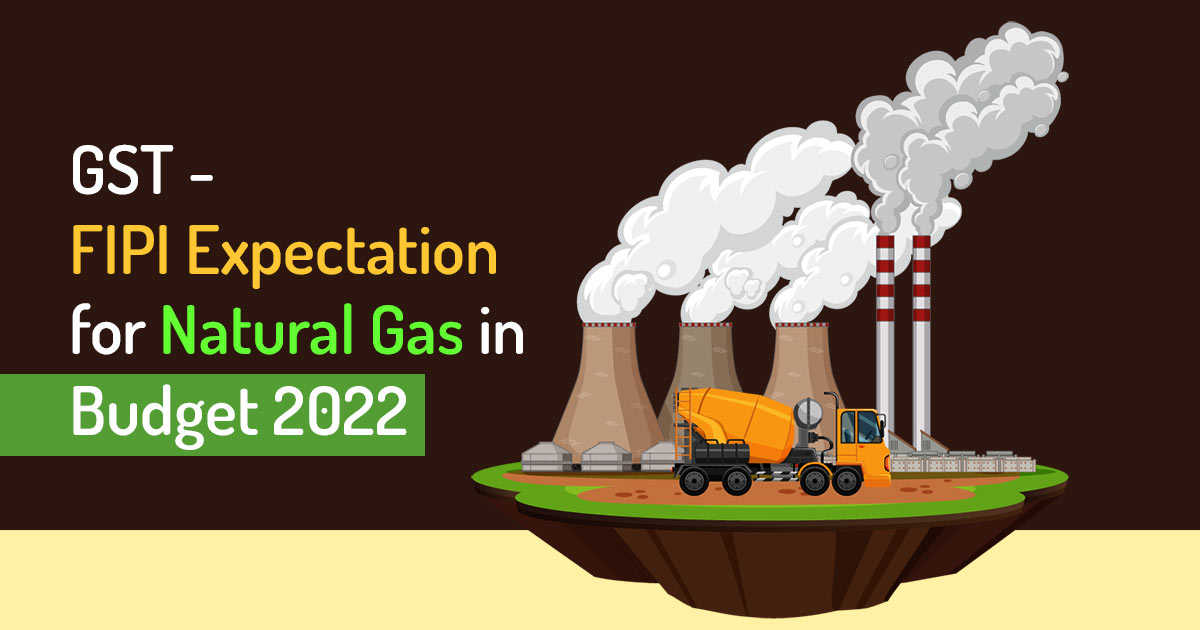
The government must draw the natural gas under GST compliance to discover the vision of the PM Narendra Modi on the subject of the economy of the gas and making the environment friendly fuel for India, the industry council that shows the likes of the Reliance Industries and the companies owned by the state.
Natural gas does not come under the GST in the current times and the same is carried under the existing central excise duty, state VAT, central sales tax.
Inside the pre-budget the Federation of Indian Petroleum Industry (FIPI), which ensures the members of the oil and gas spectrum indeed asked for the GST rationalisation on the transportation of the natural gas via pipeline and the regasification of the imported LNG.
The Prime Minister reveals the target of increasing the share of the natural gas in the country from 6.2 per cent to 15 per cent by 2030. The increase in the usage of the gas would deduct the cost of the fuel and also draw down the carbon emissions supporting the nation to pose its COP-26 devotion.
“FIPI mentioned that Non-inclusion of natural gas under the GST regime is having an adverse impact on natural gas prices due to stranding of taxes in the hands of gas producers/suppliers and is also impacting natural gas-based industries due to stranding of legacy taxes paid on it,”
VAT cost levied on the natural gas is much higher in some states Andhra Pradesh levies 24.5 per cent tax, Uttar Pradesh 14.5 per cent, Gujarat 15 per cent and Madhya Pradesh 14%.
Natural Gases under the GST, natural gases are needed to furnish the constant taxation and to enhance the trade free has in the country “This is one of the key prerequisites for the development of gas exchange in the country,”.
FIPI mentioned that the non-inclusion of the basic products of the petroleum-like crude oil, natural gas, petrol, diesel and ATF beneath the GST compliance is influencing the sector negatively.
Currently, the industry is paying GST (Goods and Services Tax) on the plant machinery procurement and also the services and still is unable to fetch its legible input tax credit as the product final is not under the GST ambit. And this factor is the major cause of stress to the industry.
The same seeks immediate inclusion of the petroleum products like crude oil, natural gas, petrol, diesel and ATF beneath the GST compliance.
The industry indeed asks for diminishing the import duty on the LNG for creating more efficiency within the polluting liquid fuel.
Liquefied natural gas (LNG) holds a clean fuel and is majorly practiced in the fertilizer and power sector. Considering the lesser amount of gas in the country the LNG import has been enhanced by the government. Currently, the LNG import draws the tax of 2.5% along with SWS cess of 10%.
“However, the basic customs duty levied on import of crude oil is only Rs 1 per tonne. Since LNG falls in the same logical category as crude oil, they must have the same level of taxation as applied to crude oil,” the same ask for the privilege from the levy of the customs duty upon LNG import.
LNG import for consumption in the generation of electric energy only for power distribution gets privileged from custom duty with respect to specific conditions. But the additional essential sectors such as fertiliser, LPG, CNG and petrochemicals suffer the load of custom duty of 2.75%.
The domestic, as well as the imported goods, do get the pressure of the increased prices of the customs duty, and as the natural gas production is still away from the target achieved makes a much larger import of LNG. This import helps the other industries including fertiliser, CNG, piped natural gas, LPG
FIPI mentioned that the imported LNG needs to be regasified and converted towards the natural gas called RLNG regasified liquefied natural gas) for transportation and consumption in India. 18 per cent GST is levied on the regasification of LNG.
“The levy of GST at a higher rate of 18 per cent on the regasification of LNG increases the landed cost of imported LNG for domestic industrial consumers, they stated.”
“Natural gas is kept outside the ambit of GST (but) regasification of LNG is under GST ambit resulting in the stranding of taxes, and a higher rate of tax owing to limited clarification is reducing the competitiveness of RLNG with other polluting fuels, they added.”
Regasification is recognised as manufacturing as per Sec 2(72) of the CGST Act, to draw 12% GST rather than 18%. But in the current times, the industry has not acknowledged the mentioned definition because of lack of transparency and the 18% GST levied.
Also, the readjustment of the 12 per cent of the job work basis can be done as soon as the clarification and the amendment can be done to the gas-based industry.
GST rationalisation has been sought by the FIPI on the services of the transportation of the natural gas via pipeline imposing 5% tax with GST ITC advantage rather than 12%.
“FIPI added This will lead to lower cost of transportation of natural gas and will help in the promotion of cleaner sources of energy for power and CNG where ITC of GST paid on transportation of natural gas is not available,”